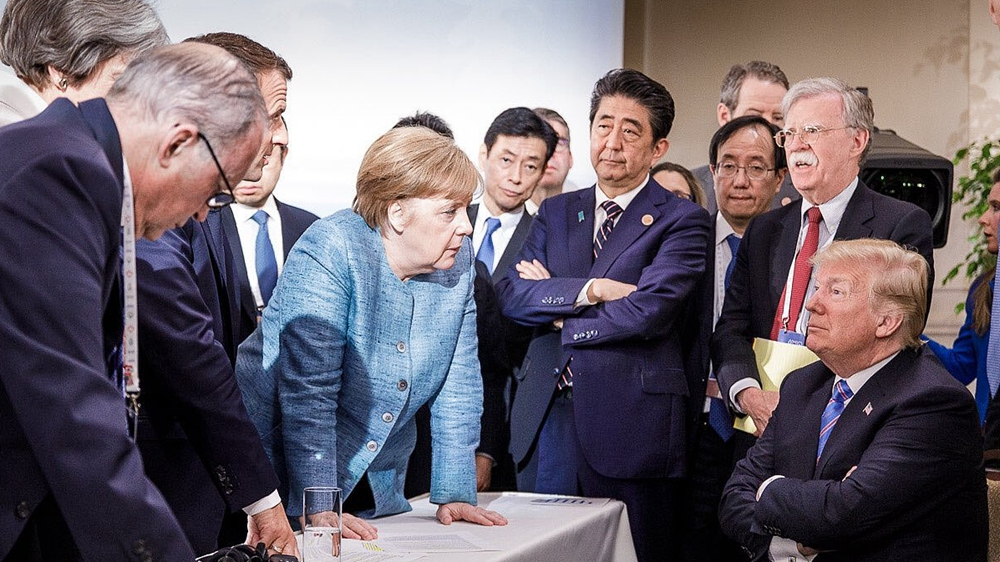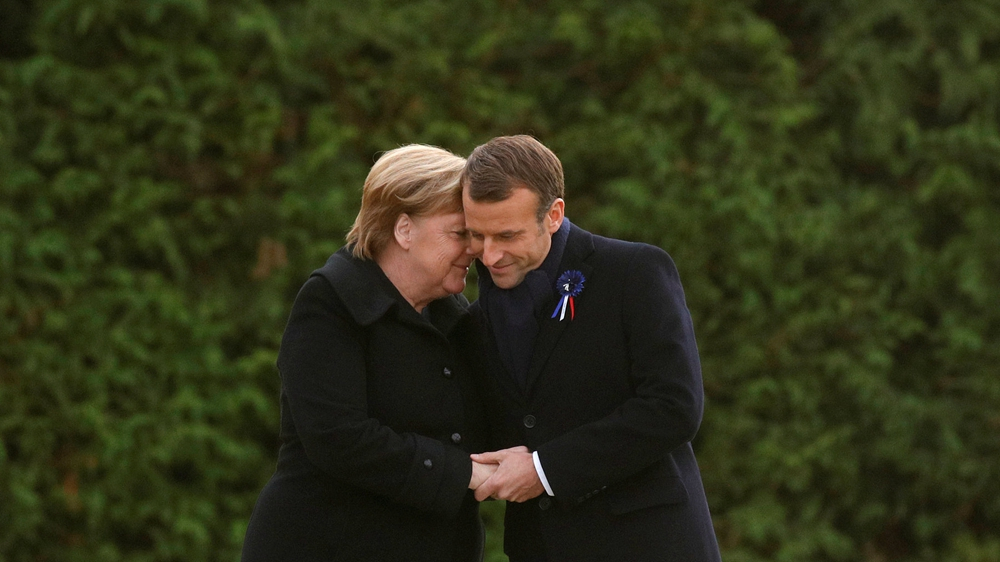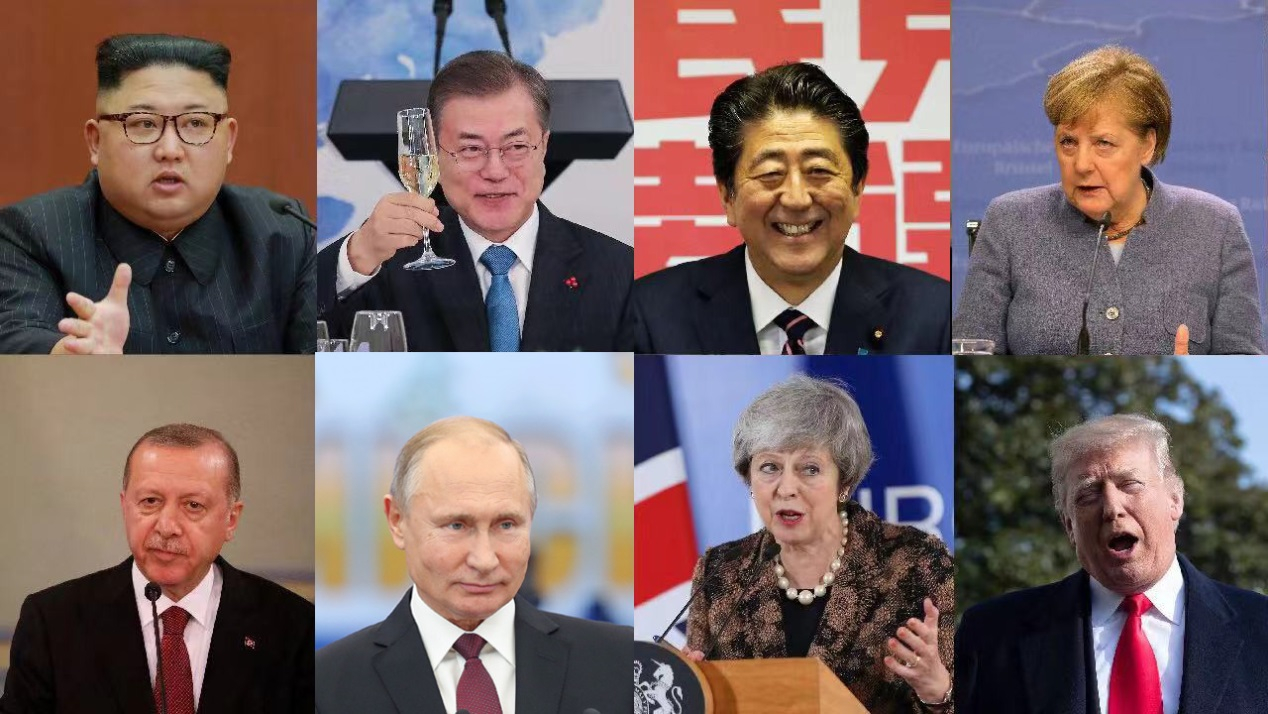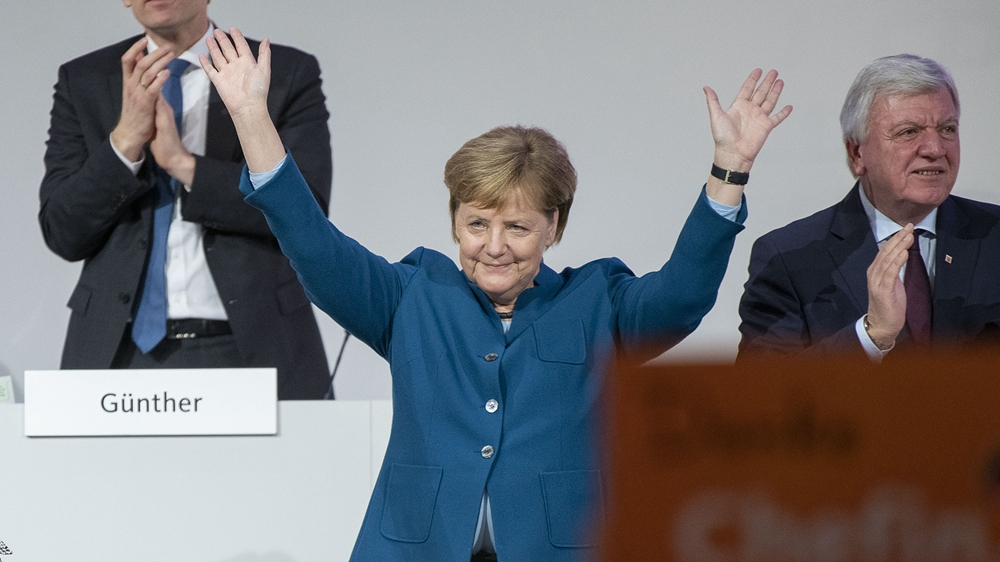For German Chancellor Angela Merkel, 2018 marked the first step toward her eventual exit from the political stage.
In power since 2005, Merkel has not only dominated German politics, but also the European and world stage for the past decade, often a voice of calm and reason.
But the 2015 migrant crisis, which saw over a million Syrian, Afghan and other refugees streaming through Europe, hurt her as her open-door policy fueled an anti-migrant sentiment in Germany.
Low points

German Chancellor Angela Merkel makes a speech during a press conference at the Christian Democratic Union headquarters in Berlin, October 29, 2018. Merkel said she was giving up party leadership, but would remain as chancellor until 2021. /VCG Photo
German Chancellor Angela Merkel makes a speech during a press conference at the Christian Democratic Union headquarters in Berlin, October 29, 2018. Merkel said she was giving up party leadership, but would remain as chancellor until 2021. /VCG Photo
On October 29, Merkel announced that her fourth term as German chancellor would be her last, that she would not be seeking reelection in 2021 and that she would also be stepping down after 18 years as leader of the Christian Democratic Union (CDU).
This came after the CDU and its Bavarian sister party Christian Social Union (CSU) suffered major losses in state elections, following a poor showing already in 2017 general elections.
Merkel said she hoped her decision would end infighting in the party and let the ruling coalition focus on governing -- a sign she no longer commands the kind of authority she once did.
Already in September, a long-time ally of Merkel was passed over as head of the CDU in parliament, in what one lawmaker called an "uprising against Merkel."
Another ally, Defense Minister Ursula von der Leyen, faces an investigation for irregular contracts, and divisions within the government were made clear over the summer when Interior Minister and CSU leader Horst Seehofer threatened to quit in a row over Germany's asylum policy.
In a separate scandal, the head of the domestic intelligence service Hans-Georg Maassen was removed from his post after he appeared to downplay the actions of far-right protesters.
Merkel was forced to apologize for her handling of the scandal.
Highlights

Photo released on Twitter by the German government's spokesman Steffen Seibert on June 9, 2018 shows US President Donald Trump (R) talking with German Chancellor Angela Merkel (C) , surrounded by other G7 leaders during a meeting of the G7 Summit in La Malbaie, Quebec. /VCG Photo
Photo released on Twitter by the German government's spokesman Steffen Seibert on June 9, 2018 shows US President Donald Trump (R) talking with German Chancellor Angela Merkel (C) , surrounded by other G7 leaders during a meeting of the G7 Summit in La Malbaie, Quebec. /VCG Photo
Despite these many setbacks, Merkel has managed to stay afloat. One headline called her "Germany's shrewd political survivor," after she announced she was stepping down.
Merkel was also given a standing ovation by party grandees, after the CDU elected Annegret Kramp-Karrenbauer to succeed her as party leader on December 7.
Beyond Germany's shores, a photo of Merkel looming over U.S. President Donald Trump at the G7 summit in June became a viral sensation, cementing her image as a world leader willing to stand up to the US, a woman Time Magazine called "Chancellor of the Free World" in 2015.
World War I commemorations in November, where Merkel's close relationship with French President Emmanuel Macron was on show, also reaffirmed the German-Franco alliance that has been at the heart of Europe.
What's in store for 2019?

French President Emmanuel Macron and German Chancellor Angela Merkel hold hands after unveiling a plaque in the Clairiere of Rethondes during a commemoration ceremony for Armistice Day, 100 years after the end of World War I, in Compiegne, November 10, 2018. /VCG Photo
French President Emmanuel Macron and German Chancellor Angela Merkel hold hands after unveiling a plaque in the Clairiere of Rethondes during a commemoration ceremony for Armistice Day, 100 years after the end of World War I, in Compiegne, November 10, 2018. /VCG Photo
Merkel will go into 2019 with less influence than before.
But for a leader who helped steer Europe through a financial crisis and migrant crisis, and helped establish Germany as a key player on the continent, the agenda for next year will still be a busy one.
Migration remains a hot issue. And Merkel will have to deal with the repercussions from Brexit as the UK becomes the first EU member to leave the bloc in the spring.
2019 will also hold a few more tests for Merkel's government and party, with a number of state and local elections, as well as European parliamentary elections in May.
Whether her decision to step down will put an end to the political infighting and ensure smooth sailing for her government in 2019, or whether on the contrary, Merkel's weakened position will kick off a leadership race remains to be seen.

(Top left to right) Kim Jong Un, Moon Jae-in, Shinzo Abe, Angela Merkel; (bottom left to right) Recep Tayyip Erdogan, Vladimir Putin, Theresa May, Donald Trump
(Top left to right) Kim Jong Un, Moon Jae-in, Shinzo Abe, Angela Merkel; (bottom left to right) Recep Tayyip Erdogan, Vladimir Putin, Theresa May, Donald Trump
This is the fourth article of our "World Leaders" series, which takes a look at eight people who shaped the global political discourse in 2018. These figures dominated the year's headlines through high-profile appearances and maneuvering, forging new relationships and severing old ones. We've published the profiles of Kim Jong Un, Moon Jae-in and Shinzo Abe over the past three days. Tomorrow we'll focus on Recep Tayyip Erdogan, who embodied the image of a strongman politician in 2018. Stay with us.






